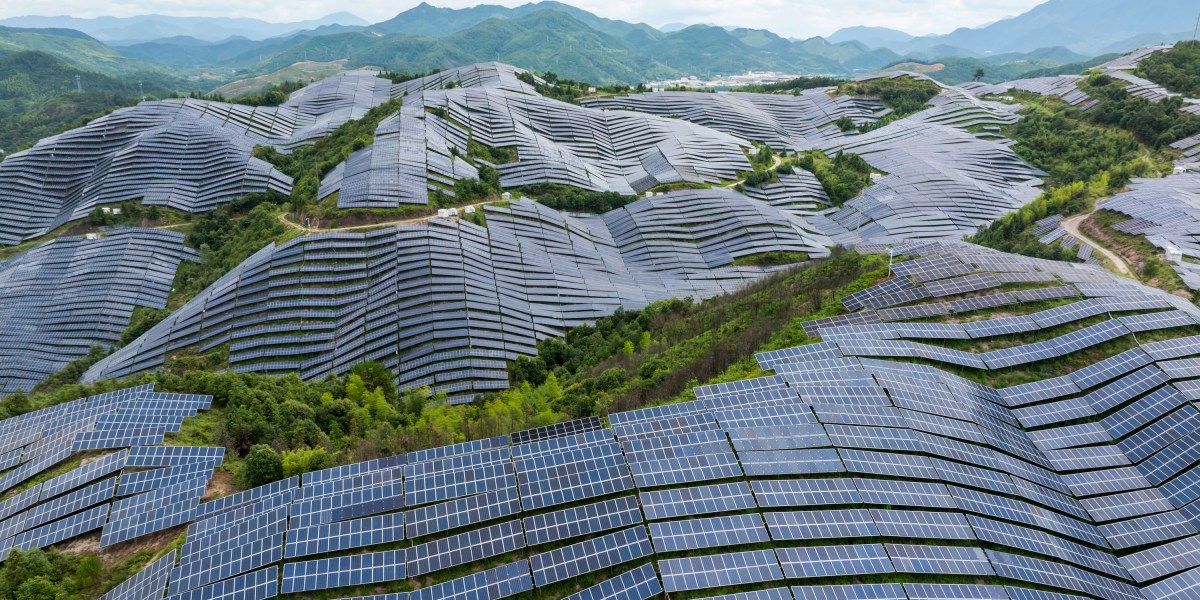Blog
How Trump is helping China extend its massive lead in clean energy

The Impact of Trump’s Policies on China’s Clean Energy Dominance
The clean energy landscape has experienced significant shifts in recent years, particularly as global leaders react to the pressing challenges of climate change. While the push for renewable resources gains momentum worldwide, the policies and decisions from the United States, particularly under Donald Trump’s administration, have inadvertently played a role in China’s ascendance as a leader in clean energy.
Understanding the Clean Energy Shift
As nations strive to reduce reliance on fossil fuels, clean energy technologies such as solar, wind, and hydroelectric power are taking center stage. China, with its vast manufacturing capacity and ambitious governmental initiatives, has emerged as a front-runner in these technologies. However, how do U.S. policies influence this landscape?
The Retreat from Global Leadership
During Trump’s presidency, the U.S. took a more nationalistic approach to energy policies. The emphasis on fossil fuels, including coal and oil, marked a stark departure from previous administrations that endorsed international climate agreements and renewable energy investments. This shift affected not only U.S. energy policies but also the global renewable market dynamics.
Withdrawal from International Agreements
One of the most notable actions by Trump was the U.S. withdrawal from the Paris Agreement, an international treaty aimed at limiting global warming. By stepping back from this agreement, the U.S. signaled a reduced commitment to fighting climate change. This absence created a vacuum that allowed China to position itself as a responsible global actor, leading numerous initiatives aimed at promoting renewable energy worldwide.
China’s Expanding Clean Energy Footprint
In response to the changing dynamics, China accelerated its investments in clean energy technologies. With government support and a proactive industrial policy, China has become the world’s largest producer of solar panels, wind turbines, and electric vehicles. The country has integrated clean technology into its economic strategy, viewing it as not just an environmental necessity but as a crucial element of national and global leadership.
Investment in Renewable Energy
China has been investing heavily in renewable resources, with a focus on solar and wind power. The country is home to the largest solar farms and wind farms, and it continues to expand these operations at a remarkable pace. This robust investment not only solidifies China’s dominance but also provides an impetus for technological advancements in clean energy.
Technological Innovations
China is not merely manufacturing existing technologies; it is actively innovating. By investing in research and development, Chinese firms are pushing the boundaries of efficiency and affordability in clean energy. These advancements not only have global implications but also make it difficult for other countries, including the U.S., to compete swiftly.
Economic Implications of U.S. Policies
Trump’s focus on fossil fuels may have economic repercussions for the U.S. and its standing in the clean energy sector. The shift away from renewable energy investment means that American companies are losing out on potential growth in a booming market. As China continues to lead in manufacturing and innovation, the gap between the two nations may widen, threatening job creation and economic opportunities in the U.S.
Job Creation in Clean Energy
The clean energy sector has proven to be a significant job creator. By neglecting this transition, the U.S. risks falling behind economically. Jobs in renewable energy are not only plentiful but often offer higher wages than traditional fossil fuel jobs. As China expands its clean energy workforce, the U.S. may find itself at a disadvantage, resulting in lost economic opportunities and innovation.
The Role of Public Perception and Investment
Public attitudes towards climate change and renewable energy are changing rapidly. In the U.S., there is growing demand for sustainable practices and climate-focused policies. However, without robust governmental support, private investments may not flow as freely into the sector. In contrast, China’s governmental backing creates an ecosystem where renewable energy can flourish.
The Importance of Visionary Policies
For America to reclaim its position in the clean energy sector, a transformative approach is needed. By embracing policies that align with renewable energy, the U.S. can not only address climate change but also foster economic growth and innovation.
Global Competition and Future Prospects
As China solidifies its position in clean energy, the global competition heats up. Other countries see the potential for economic benefits through green technologies, leading to a worldwide race towards renewable energy investment. The U.S. must act decisively to keep pace and not allow China to set the agenda for the future.
Collaboration Over Competition
In order to maximize the potential of clean energy, international collaboration may be key. Instead of viewing countries like China solely as competitors, the U.S. can foster partnerships that lead to shared technological advancements and solutions to global challenges.
Conclusion: The Path Forward
The future of clean energy is at a critical juncture. Trump’s policies have reshaped the framework within which this vital sector operates, unintentionally benefiting China’s ambitions. By reevaluating energy strategies and committing to clean technologies, the U.S. can not only reclaim a competitive edge but also play a pivotal role in addressing the existential threat posed by climate change. As nations look to balance economic growth with environmental sustainability, the path chosen today will define the global energy landscape for decades to come.

